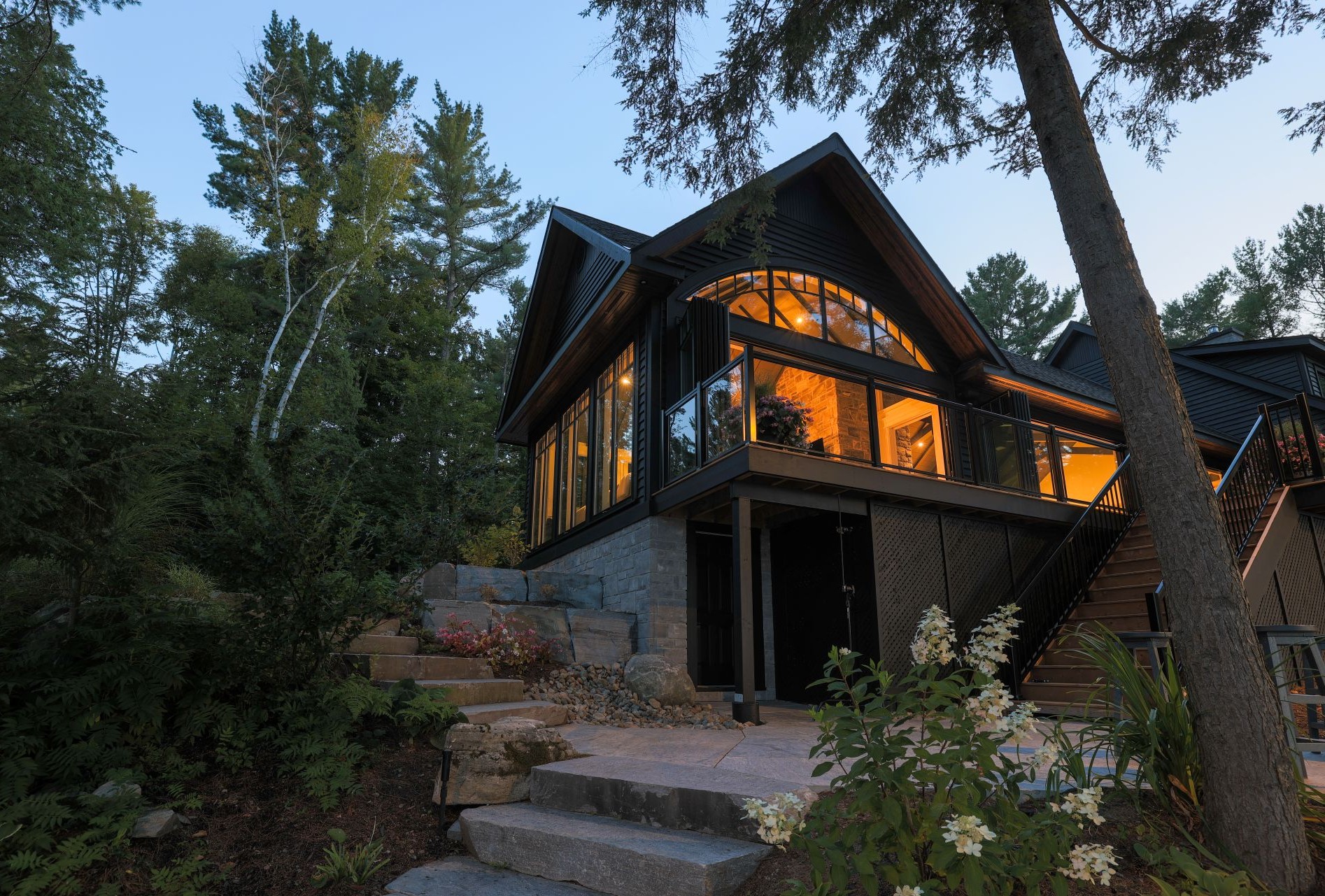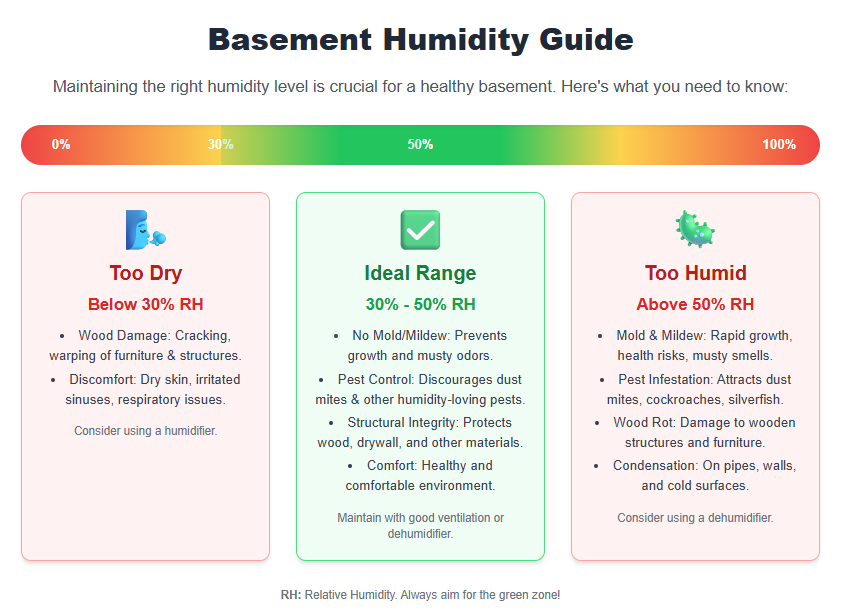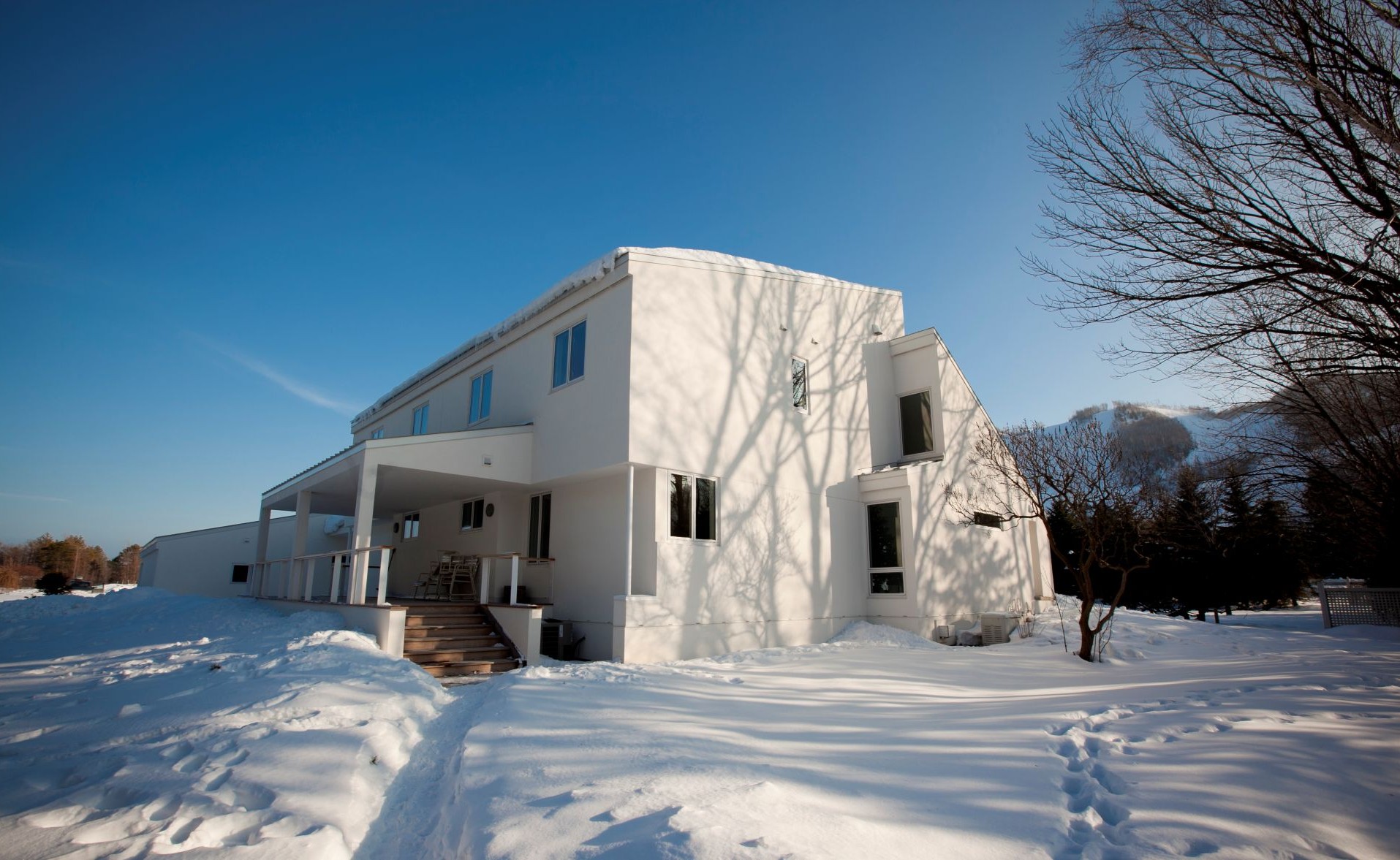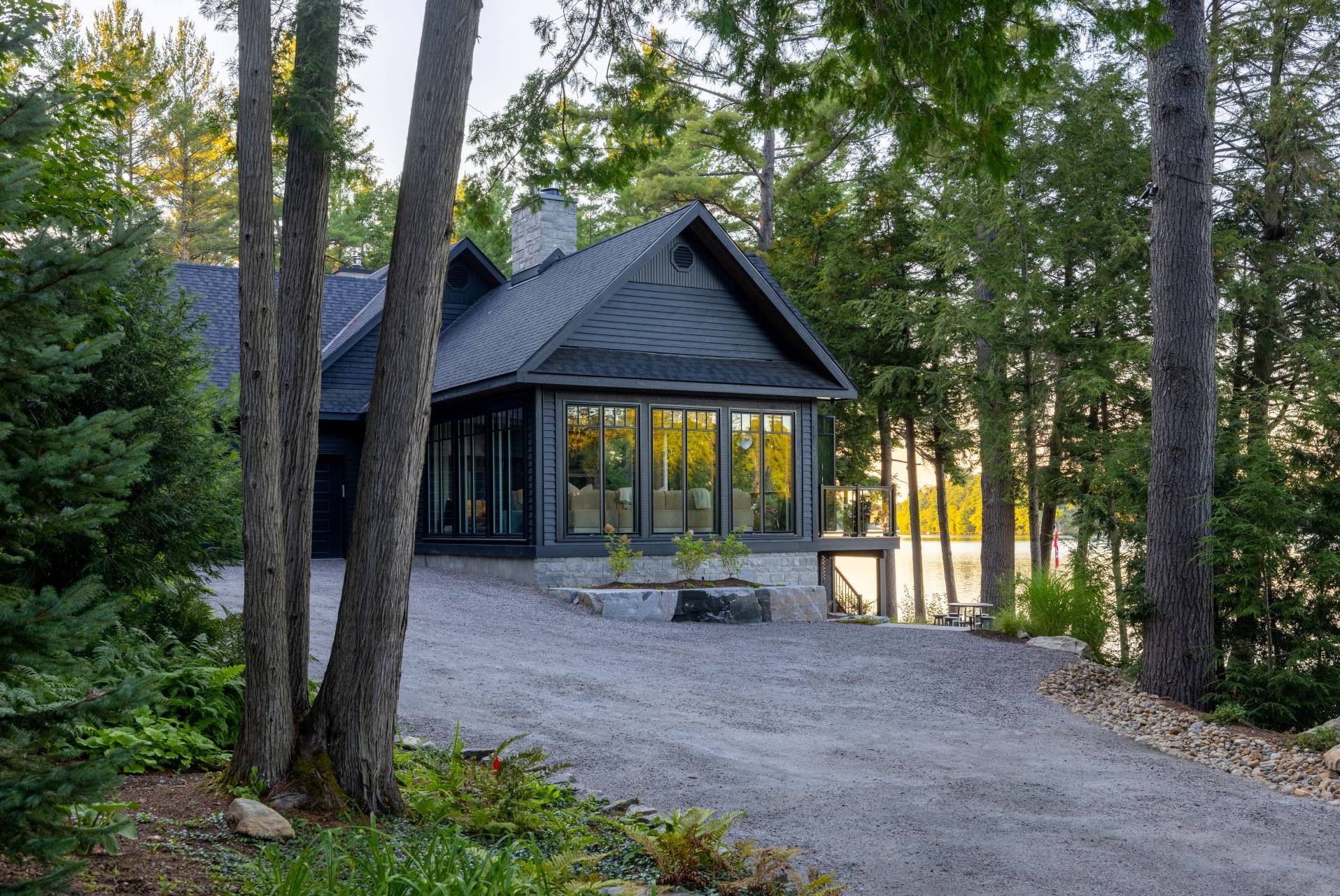
Energy Efficient Windows
The Ideal Basement Humidity Level: A Complete Guide
If you’ve ever walked into your basement and been hit with that musty, damp smell, you’re definitely not alone. While it may seem like a minor issue at first, high humidity can pose serious health risks and even damage your home's structural integrity. This is why controlling humidity should be a priority for any homeowner. Keeping moisture in check can save you a lot of headaches (and money) down the road.
In this article, we’ll explore the ideal basement humidity level, what causes excess moisture, and how to keep it under control year-round, especially during Canada’s harsh winters and humid summers.
Key Takeaways
- Aim for 30–50% humidity in your basement, or slightly lower in cold regions like Northern Canada to prevent condensation and mold growth.
- Poor ventilation, leaky pipes, inadequate drainage, and old windows can all lead to increased moisture levels and poor air quality.
- Too much humidity can lead to mold-related health issues, respiratory problems, and even permanent damage to your home's foundation and interiors.
- There are plenty of steps you can take to protect your basement (and the rest of your home): from using dehumidifiers and sealing cracks to improving ventilation and replacing outdated windows.
What Is a Good Humidity Level for a Basement?

The ideal basement humidity levels range between 30% and 50%. However, if you live in Northern Canada, where lower temperatures like -20°F (-28.8°C) are more common, basement humidity levels should be lower, generally between 20% and 25%. If you notice condensation forming on windows, you can lower it even more, as long as the basement is not used as a living space (when the air is too dry, it can worsen respiratory issues).
Keeping your basement humidity within this range is extremely important, as it prevents mold and mildew growth, structural damage, and several health risks. This is because excess moisture in the basement also deteriorates indoor air quality, encouraging mold and harmful bacterial growth. In fact, because of the stack effect, the poor air quality in the basement can affect the air quality in the entire house.
What Makes Basements So Humid?
If you're wondering what causes excessive moisture in the basement, you're in the right place! We've prepared a list of the most common issues that lead to humidity problems in enclosed spaces like basements.
1. Poor Ventilation
Poor ventilation is a major contributor to high basement humidity, as these spaces are typically airtight, and moisture cannot escape on its own. When air doesn’t circulate properly, it traps humid air inside, creating a breeding ground for mold and bacteria.
You can install exhaust fans or enhance existing ventilation systems to improve airflow. Plus, regular maintenance of your home’s ventilation system is necessary to manage humidity.
2. Leaking Pipes
Leaking pipes are another common cause of excess basement moisture. They not only increase humidity levels but can also cause structural damage.
Signs of leaking pipes include:
- Wet spots
- Rust
- Condensation
- Cracks in the walls or floors
If you have a leaking pipe, you should seek professional help to address this issue. If you want to reduce the risk of water leaks, schedule yearly inspections of your home's plumbing issues.
3. Outdoor Weather Conditions

Basements are below ground - this says it all. They are surrounded by soil, which is often prone to moisture accumulation, either because of heavy rainfalls or poor drainage around the foundation. The moisture in the soil then seeps into the basement through tiny, almost unnoticeable cracks. Over time, this increases relative humidity levels.
You can mitigate these effects by ensuring proper drainage around your home, having proper lawn grading, using dehumidifiers to maintain appropriate moisture levels, and monitoring weather conditions.
4. Basement Used as Living or Laundry Room
If the basement is used as a living space, it will naturally be more humid because it is usually not as properly ventilated as other rooms in the house.
Did you know that breathing can increase humidity, especially during the winter season? When a person exhales, they release water vapor into the air, which translates into higher humidity.
Moreover, cooking, showering, and doing laundry can also significantly increase humidity in the basement.
And let's not forget about basement flooring: if it's made of untreated wood or there are carpets in the basement, humidity will increase, as these can trap moisture and mold.
5. Poorly Insulated Windows and Poorly Drained Window Wells
If your basement has old or poorly insulated windows, they can contribute to high indoor humidity because they can have water and air leaks. If they're single-pane, they'll almost always have condensation on them in winter, which further increases humidity levels.
In addition, if the window well that surrounds the window doesn't have a proper drainage system, water can accumulate in it and then enter the basement through the windows and cracks in the foundation walls.
Signs Your Basement's Humidity Level Is Too High

Here are the most common signs that your basement humidity levels are too high:
- Persistent, musty odors, which indicate mould growth
- Condensation on windows
- Water droplets forming on cold surfaces like pipes or toilet tanks
- Discolored areas on walls or ceilings
- Peeling wallpaper or paint
- Wood rot
- Pest infestations
- Visible mold growth
- Rust on metal objects
You can monitor basement humidity through digital hygrometers. Place a hygrometer near the basement floor, away from vents, to get accurate readings. Some smart models can send alerts to your phone if levels rise.
Health Risks Associated with High Humidity Levels

Uncontrolled moisture levels in basements can affect the human body, causing serious health problems. For example, mold growth can lead to respiratory infections, allergies, and even chronic respiratory diseases. In some cases, often after severe leaks, toxic mould can grow in the basement, which poses significant health risks, especially for persons with compromised immunity.
In addition, condensation from high humidity encourages bacteria growth, which can lead to infections and other health complications. Furthermore, if humidity levels are too high when it's hot, individuals can experience dehydration caused by excessive sweating, high blood pressure, heat exhaustion, and even fainting.
Radon Gas Movement
It's important to note that high humidity can worsen indoor air quality and may even trap radon gases inside.
Radon is a radioactive gas that can enter the basement through the soil beneath it, seeping via cracks, gaps, and even poorly sealed sump pump pits. Long-term radon gas exposure can cause serious health problems, including lung cancer.
Therefore, consider testing for radon and installing a mitigation system if needed.
How to Reduce Basement Humidity: 8 Effective Methods

Whether you're using your basement as a storage space or a bedroom, maintaining basement humidity within the recommended range can reduce the risk of developing serious health issues and prevent structural damage.
Therefore, in the following sections, we'll discuss some methods that can help you lower humidity levels in your basement.
1. Use Dehumidifiers
Dehumidifiers are really great for controlling basement humidity levels. They work by drawing the moist air in, filtering it, then cooling it to condense moisture.
There are different types of dehumidifiers, so choose the one that suits your needs best. Before you buy one, you'll need to know what tank size you need and what range of humidity it can control.
2. Seal Cracks and Gaps
It's extremely important to thoroughly check your basement walls and seal any visible cracks or gaps. This way, you're preventing water intrusion from the outside. If you're not sure how to do this, it's best to seek professional help, as they can identify even the tiniest cracks and seal them properly.
3. Improve Drainage Systems
Proper drainage systems are vital for managing basement humidity. First, you should make sure your gutters and downspouts are strategically installed and cleaned regularly. They should direct water away from your home's foundation.
Additionally, you can install a sump pump or a different interior drainage system. And don't forget about checking your lawn's grading!
4. Replace Windows and Repair Window Wells

If your windows are old and improperly insulated, it's probably time to replace them. Modern, energy-efficient windows will keep basement humidity and temperature within needed levels.
Furthermore, make sure to check your window well's drainage system to prevent water accumulation. If possible, install a window well cover that will keep water and debris from entering the window well.
5. Fix Any Leaks
If you suspect that your basement is humid because of a leak, don't wait for things to get worse (spoiler alert: it doesn't take much! Did you know that mold can form on a damp surface within 24 hours?). Contact a professional who can identify the leak source and solve the issue. Humid environments are bad for your health and for your home's structural integrity.
6. Open Basement Windows Every Day
Controlling humidity levels in your basement starts with ventilating the room. Open your windows every day, no exception! Ideally, you should open them in the morning and in the evening for at least 10-15 minutes. This will eliminate the humid air, replacing it with drier air.
However, keep in mind that outside air can also be moist, especially if you live in a coastal area or have water-hungry vegetation around your basement. In this case, you'll still have to use other methods to avoid a humid environment, such as running a dehumidifier. You can also install whole-house ventilation systems, as they excel at regulating airflow. And don't forget to maintain your basement's vent regularly!
7. Insulate the Walls to Lower Basement Humidity
Basements often have high humidity because the walls aren't properly insulated. Insulation increases surface temperatures inside it, which means moisture can't cool and condense. This doesn't only remove excess moisture but also lowers your energy bills.
8. Use Your AC In the Summer
Summers are quite humid in Canada, and the best way to manage moisture levels during the summer months is to use your air conditioning. ACs are effective because they can remove moisture from the air. And, as a bonus, they also keep your basement cool! You can also use a dehumidifier during the summer if you feel like your AC is working too hard.
Looking to Upgrade Your Basement Windows? Allow Magic to Help You!
Old, drafty basement windows are one of the biggest culprits behind high humidity, and we’ve got the perfect solution! Magic offers Canada’s most energy-efficient window systems, designed specifically for the demands of our climate. Our windows feature cutting-edge insulation technology, advanced weatherproofing, and a remarkable 40-year warranty to give you long-term peace of mind!
Contact Magic today to book a free consultation and learn how we can help you transform your basement into a drier, healthier, and more energy-efficient space!
Frequently Asked Questions
Is 60% humidity too high for a basement?
60% humidity is too high for a basement. You should keep humidity levels in the basement between 30% and 50%. Otherwise, mold will start growing.
What should I set my dehumidifier at in my basement?
You should set your dehumidifier in your basement between 30% and 50%. This is the recommended range for a healthy environment.
Is 40% humidity too low for the basement?
40% humidity is not too low for the basement. The ideal basement humidity is between 30% and 50%, so keeping it at 40% is perfect.
Will mold grow at 55 humidity?
Mold can definitely start growing at 55% humidity, and it thrives at humidity levels above 60%. Therefore, it's best to keep basement humidity levels below 50% to prevent mold growth.
How can I tell if my basement's humidity level is too high?
You can determine if your basement's humidity level is too high by looking for signs such as persistent odors, visible mold, water droplets on surfaces, discolored walls, or peeling paint. Addressing these indicators is crucial to maintaining a healthy environment.
What are some common causes of high humidity in basements?
High humidity in basements is often caused by poor ventilation, leaking pipes, and outdoor weather conditions such as high humidity and frequent rainfall.
How can I control basement humidity levels effectively?
To effectively control basement humidity levels, utilize dehumidifiers, seal cracks and gaps, and enhance drainage systems. Regular maintenance and monitoring will further ensure optimal results.
When should I seek professional help for basement humidity issues?
You should seek professional help for basement humidity issues if the problems persist despite your efforts or if you observe foundational cracks or significant water infiltration.